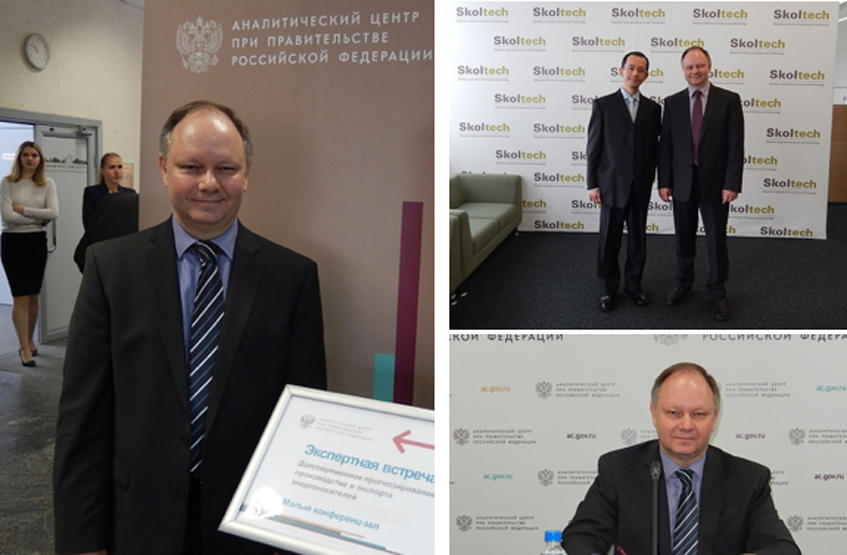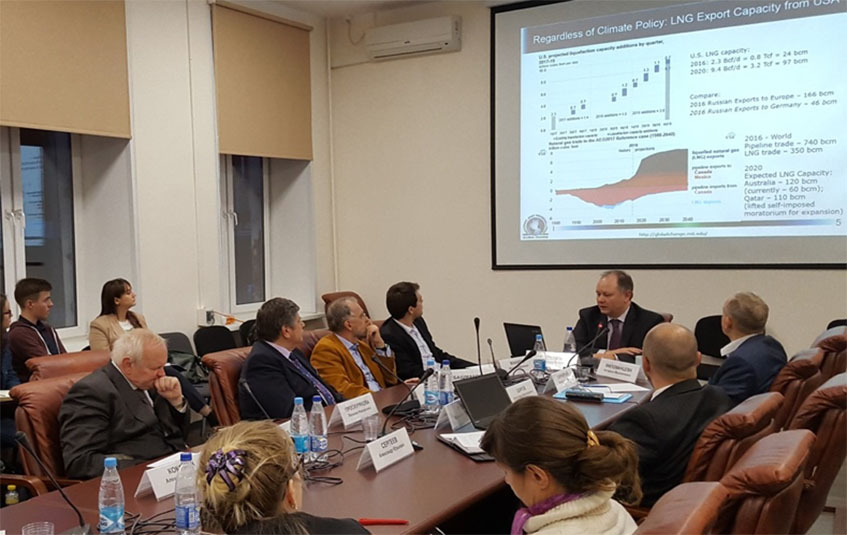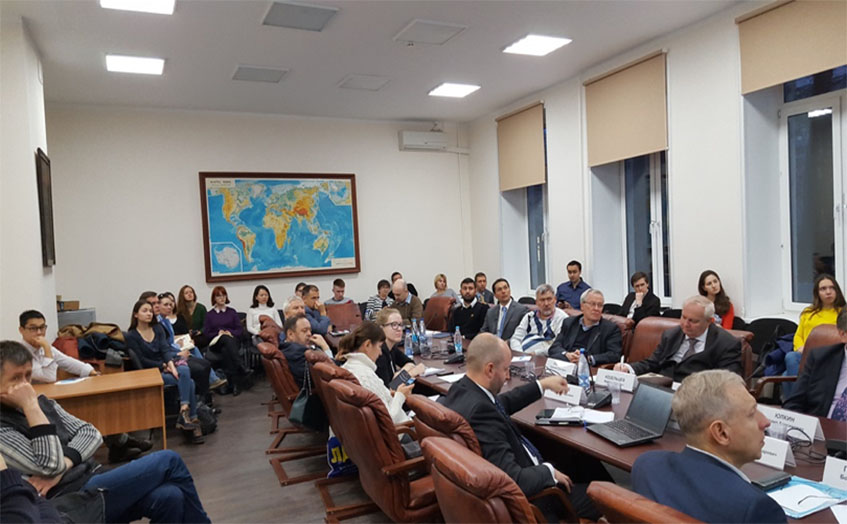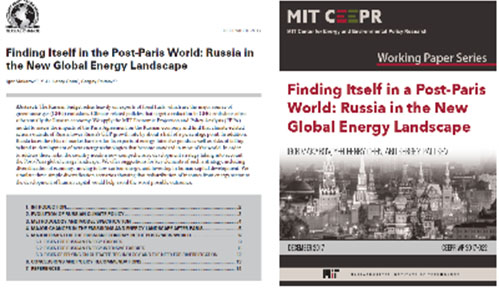PI: Sergey Paltsev, MIT Energy Initiative
Abstract
Achieving the Paris Agreement goals of climate stabilization requires a transformation of energy system over the upcoming decades. Russia, as a fossil fuel producer, will have to adjust its economy to reflect lower export earnings from oil, coal, and natural gas. Using a global energy-economic modeling framework, we will assess the impacts of energy transformation policies and the resulting global market dynamics on Russian economy, including the changes in its sectoral output, energy mix, and GDP. The analysis will provide a basis for strategic decision-making to industry representatives, policy makers, and academic researchers in Russia and other countries. Understanding sectoral and economy-wide impacts is crucial for assessing the magnitudes of the challenges that lie ahead. The project will be a tool to enhance the discussions between government, industry and academia on the long-term strategy for energy and economic transformation of Russia.
Report
- Project Title: Russia in the Post-Paris World: New Energy Landscape
- Principal Investigator: Sergey Paltsev (paltsev@mit.edu), Senior Research Scientist, MIT Energy Initiative; Deputy Director, MIT Joint Program on the Science and Policy of Global Change
- Grant Period: February 2017 – January 2018

Dr. Sergey Paltsev and Dr. Henry Chen at the Analytical Center for the Government of Russian Federation and at Skolkovo Institute of Science and Technology in June 2017
During our visit to Moscow in June 2017, we had informative discussions with faculty and graduate students of the energy cluster at Skolkovo Institute of Science and Technology (Skoltech). We have provided an overview of the research activities at the MIT Joint Program on the Science and Policy of Global Change and then we had a roundtable discussion about the current student research projects at Skoltech. We have agreed to explore a potential for mutually beneficial research projects.
After returning back to MIT, we have continued our work on improving our analysis of the impacts of the Paris Agreement on the Russian economy, including a better representation of Russian export markets for natural gas, oil, and coal. Our next opportunity to enhance the discussions between government, industry and academia on the long-term strategy for energy and economic transformation of Russia occurred in November 2017. A lecture to the third-year students of HSE has attracted numerous questions about the energy-related research at MIT (https://www.hse.ru/ba/we/news/211882208.html). We also used this visit to Moscow to get Russian expert opinions about our analysis of Russian energy exports by organizing a seminar at HSE (https://wec.hse.ru/news/211883636.html).
Comments on our research were provided by numerous experts: V. Kryukov, Director of Institute of Economic and Industry, Siberian Department of Russian Academy of Sciences; B. Pofiriev, Deputy Director of Institute of Economic Projections of Russian Academy of Sciences; I. Bashmakov, Director of Center for Energy Efficiency; M. Yulkin, Director of Center for Ecologic Investments, V. Tuzov, Director for Strategy of the Russian coal company SUEK, and many others participants of the seminar. The leading Russian business newspaper, Kommersant, in its issue from November 14, 2017, has published an article about our HSE seminar discussions (The online version is available at: https://www.kommersant.ru/doc/3466841).


Seminar at the National Research University Higher School of Economics by Dr. Sergey Paltsev and Dr. Igor Makarov in November 2017
We have incorporated the results of the discussions to improve our working paper entitled Finding Itself in the Post-Paris World: Russia in the New Global Energy Landscape. In December 2017 the working paper, with an acknowledgement for the funding from the MIT Skoltech Seed Fund Program, becomes available on the MIT Joint Program website at https://globalchange.mit.edu/publication/16859 and the MIT Center for Energy and Environmental Policy Research (CEEPR) website at: http://ceepr.mit.edu/publications/working-papers/675. A short research brief of the major finding of our analysis is available at: http://ceepr.mit.edu/files/papers/2017-022-Brief.pdf.

In the working paper we provide major results from the current stage of the analysis. We project that climate-related actions outside of Russia will lower the country’s GDP growth rate by about one-half of a percentage point. The Paris Agreement is also expected to raise Russia’s risks of facing market barriers for its exports of energy-intensive goods, and of falling behind in the development of low-carbon energy technologies that most of the world is increasingly adopting. We argue that to address these risks, the country needs a new comprehensive development strategy that accounts for the post-Paris global energy landscape. We offer suggestions for key elements of such a strategy, including diversification of the economy, moving to low-carbon energy sources and investing in human capital development. Our study simulates three simple diversification scenarios showing that redistribution of incomes from the energy sector to the development of human capital would help avoid the worst possible outcomes.
The funding from the MIT Skoltech Seed Fund Program has helped us to establish the initial ties with Skoltech faculty and students, and to connect us to researchers at HSE, experts at Russian government, and analysts at Russian oil, natural gas and coal companies. Further exploration of the benefits and risks for the long-term strategy for energy and economic transformation of Russia will benefit the mission of the Skolkovo Foundation to be the catalyst for the diversification of the Russian economy.
